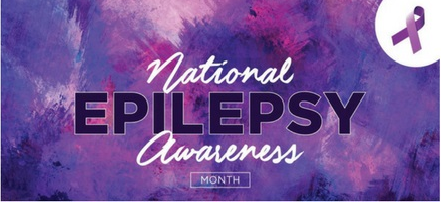Epilepsy.
It’s a word that frightens many people, particularly when they think someone in the room with them might have it. This month is national epilepsy awareness month and it is something that it incredibly close to my heart. The best way to tell you why is to let you know a story, and yes, it is a true one.
A few years ago I was sitting in the staff room of a school where I had been teaching for a while and enjoying lunch with my colleagues, as I usually would. The topic of epilepsy came up, and a number of staff members started talking about their experiences of witnessing people having seizures , how it made them feel and how they had been unsure about what to do.
The loudest voices in the room began to talk about how those with epilepsy should not drive, should not be teachers looking after 30 students alone, should not be allowed to swim in public pools without someone with them as well as some other less complimentary things that I won’t mention.
It was interesting sitting back and observing. Seeing who was agreeing and those who were passive listeners. But what horrified me was that not one teacher, not one colleague of mine in that room spoke up and disagreed with anything that was being said by those loud voiced, opinionated people.
So when the room finally quieted down, I said something. Just three words.
I have epilepsy.
I would love to tell you that I saw respect on the faces of my colleagues, or that they chose to be supportive. But they weren’t. What I honestly saw in return was a lot of anger. As if I had kept a secret from my colleagues that was going to change their lives for the worse.
Yes, I got a few questions, like ‘How long have you had it?’, ‘How come you get to drive?’ but I got more questions like ‘Why didn’t you tell us earlier?’, ‘Does the principal know?’ (Incidentally, yes, she knew. I am very upfront about my having epilepsy with senior staff and anyone else that is legally required to know).
Only one of my colleagues asked ‘What do we do if you have a seizure?’
So what do you do if someone around you has a seizure?
Clear any obstacles around us that we might harm ourselves on. Don’t try to restrain us, and please, don’t put your fingers in our mouth (that includes giving us anything to eat or drink). If we are wearing tight clothing, see if you can loosen a button or two. If you are able to slip something soft under our head, go for it.
We don’t have control over our bodies when we have a seizure. So we might void our bladder or bowels (an icky thought I know, but it happens), we might go red or purple in the face, we might bite our tongue. It’s scary for you to watch, we know, but we need you.
We need you to call emergency services if you are not comfortable, or not sure what to do. We need you to remain calm. We need you to reassure us afterwards because we might be disoriented, and hey, who doesn’t like to see a friendly face? But most of all we need you to treat us as if we are still the same person you always knew.
Because we are.
My epilepsy began when I was 33. No warning. No trigger. No prior sickness. It just happened. I am one of the lucky ones whose seizures are easily controlled with medication, and I will remain on medication for the rest of my life. I get to drive, though I have a yearly medical signing off saying I can (incidentally my licence was suspended for nine months while getting the seizures under control, and ensuring they stayed that way once on medication). I can teach. I can do anything and everything I ever did prior to having that very first seizure.
My life is bigger, busier, fuller, and filled in more ways than it ever was prior to having that first seizure six years ago, and I love my life. I am still that same woman. I am still Suzanne. It’s just that I now also say those three words.
I have epilepsy.

